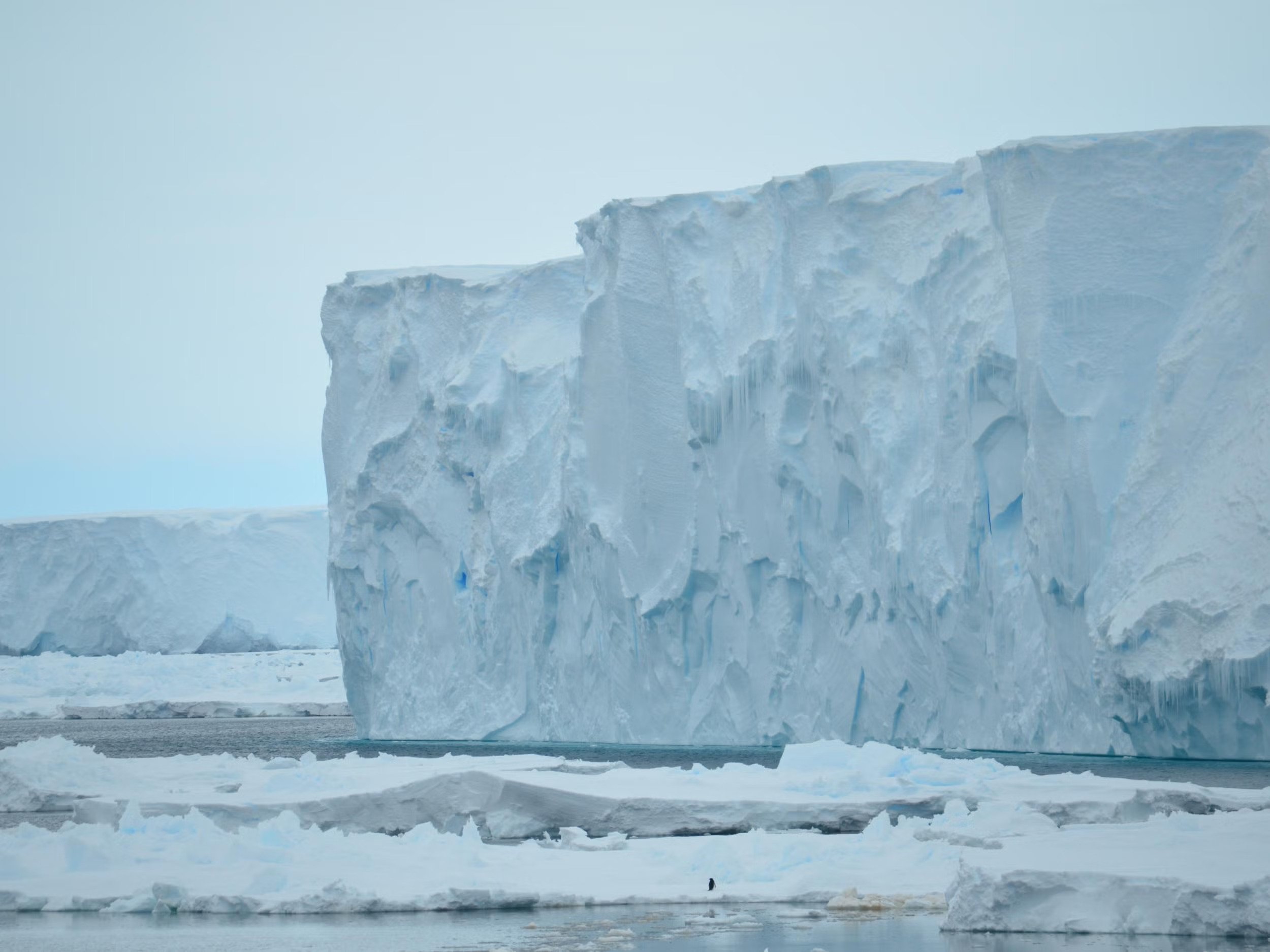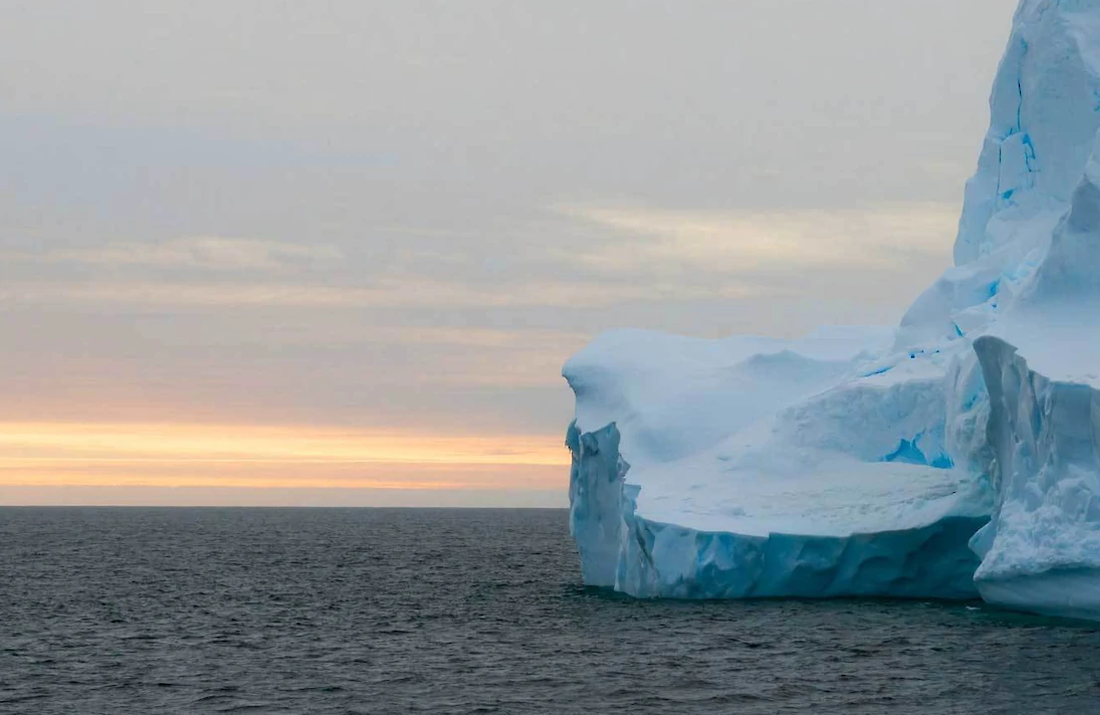Inevitable West Antarctic Ice Melting Threatens Sea-Level Rise, Study Warns
Inevitable West Antarctic ice melting threatens sea-level rise, study warns, as research published on Monday suggests that even if the world successfully meets its goals to limit global warming, the melting is still expected to significantly speed up in the coming decades.
Author:Rhyley CarneyReviewer:Paula M. GrahamOct 25, 202311.1K Shares166.1K Views

Inevitable West Antarctic ice melting threatens sea-level rise, study warns,as research published on Monday suggests that even if the world successfully meets its goals to limit global warming, the melting is still expected to significantly speed up in the coming decades.
In a recent study, scientists issued a stark warning, emphasizing that humanity has relinquished control over the destiny of the thinning ice shelves - the frozen platforms situated at the periphery of the main ice sheet, which serve a crucial role in stabilizing the flow of glaciers into the ocean.
This region has been witnessing an accelerating loss of ice in recent years, and experts have voiced concerns that West Antarctica's colossal ice sheet, containing enough water to elevate sea levels by several meters, may be approaching a critical climate "tipping point."
The research, employing computer modeling, revealed that a swifter rate of ice shelf melting is inevitable in the forthcoming decades as the ocean warms. These findings remained consistent even in a scenario where greenhouse gas emissions are drastically reduced, and global warming remains within the more ambitious target set by the Paris Agreement of limiting the temperature increase to 1.5 degrees Celsius since the pre-industrial era.
"It appears that we may have lost control of the West Antarctic ice shelf melting over the 21st century," said lead author Kaitlin Naughten, of the British Antarctic Survey.
The study, featured in the journal Nature Climate Change, investigated the phenomenon of ocean waters melting the undersides of the floating ice shelves in the Amundsen Sea. In the most optimistic scenario, it was discovered that ocean warming is occurring at a rate approximately three times faster in the 21st century compared to the 20th century.
“„Our simulation suggests that we are now committed to a rapid increase in the rate of ocean warming and ice shelf melting for the rest of the century.- Kaitlin Naughten
A Wake-Up Call
While the researchers didn't precisely model the consequences of rising sea levels, Naughten emphasized that there is a strong basis to anticipate that this discovery will contribute to the existing projections, which already estimate a potential sea-level rise of up to one meter by the close of this century.
"West Antarctic ice shelf melting is one impact of climate change that we are probably just going to have to adapt to," she said.
A significant number of individuals worldwide inhabit low-lying coastal regions, and it is noted that certain "coastal communities will either have to build around or be abandoned," according to the statement.
Alberto Naveira Garabato, a professor specializing in physical oceanography at the University of Southampton, described the research as "sobering."
"It illustrates how our past choices have likely committed us to substantial melting of the West Antarctic Ice Sheet and its consequent sea level rise - to which we will inevitably have to adapt as a society over coming decades and centuries," he told Science Media Centre.
However, he emphasized that it must also serve as "an urgent wake-up call" to prevent additional severe climate repercussions, such as the potential melting of the East Antarctic ice sheet, which is presently regarded as more resilient.
“„We can still save the rest of the Antarctic Ice Sheet, containing about 10 times as many meters of sea level rise, if we learn from our past inaction and start reducing greenhouse gas emissions now.- Alberto Naveira Garabato
The researchers emphasized that while ambitious efforts to reduce emissions may not substantially alter the loss of the West Antarctica ice shelves in the current century, they could have a more significant and lasting effect over the long term. It is expected that the ice sheet will require centuries, if not millennia, to fully respond to climate change.
Jonathan Bamber, a professor affiliated with the University of Bristol's School of Geographical Sciences, cautioned that the study has certain limitations, as it relied on a single ocean model and did not explicitly explore the impact of warming waters on sea level rise.
“„This part of West Antarctica contains sufficient ice to raise global sea level by more than a meter so it's important to understand how it will evolve in the future.- Jonathan Bamber
Jump to

Rhyley Carney
Author

Paula M. Graham
Reviewer
Latest Articles
Popular Articles
